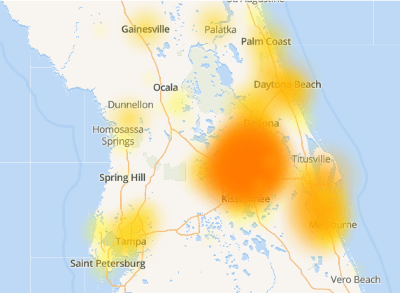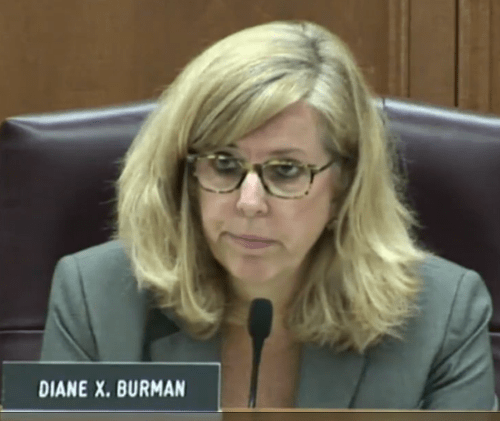
Burman
New York State Public Service Commissioner Diane Burman today voted against motions to give Charter Communications more time to develop its six month exit plan to leave New York and a motion to get more time to file a rehearing request about Charter’s alleged violations of merger conditions governing its behavior in the state.
Burman’s opposition was rooted in her irritation over PSC Chairman John Rhodes’ decision to hold an unscheduled special session of the Commission on July 27 (which Burman did not attend because of a scheduled family vacation) where the three remaining commissioners all voted to cancel approval of the Merger Order allowing Charter Communications to acquire Time Warner Cable in New York State.
“I believe it was wrong to have that special session and I don’t believe that the rationale for it is the right one,” Burman told her fellow commissioners this morning at a regularly scheduled Commission Session. “I think it is a slippery slope that there was a special session without me present and that is concerning.”
Burman argued the Commission’s recent approval of time extensions in the Charter case could set a precedent that could take the regulatory agency down a road where companies like Charter and other utilities could delay proceedings by having informal private talks with Commission staff. As a result, Charter has effectively stopped the Commission’s clock on pre-determined deadlines like a 30-day limit to file a petition asking the Commission for a rehearing.
“The message that I fear we are sending is if there is an order that someone disagrees with and they are going to file a petition for rehearing […] if they are engaged in ‘productive’ dialogue, whatever that term may be, between the staff, we can wait for the petition for rehearing to be filed past the 30 days,” Burman argued. “For me, the impactful piece of it is that by saying ‘don’t file now’ we are blocking the [regulatory and public notice] process and the opportunity to start that clock so that people have the opportunity to comment on what we may be doing, which may be helpful.”
Because the Commission has approved delays allowing Charter company officials and the Commission to continue privately discussing matters, none of those conversations are on the public record and no groups, including Stop the Cap!, can scrutinize the discussions and file comments about those conversations, Commission decisions that may result from those talks, or suggest alternative corrective measures to consider.
The PSC’s counsel this morning admitted the Commission and Charter were engaged in active settlement discussions, but it isn’t known if those talks relate to overturning the Commission’s decision to banish Charter from the state or are about more procedural matters such as how Charter plans to hand over cable service to another entity.
“I think there are lessons to be learned from having the special session without me there and I do think that going forward, we need to be more cognizant of taking into consideration what the perception is by not having the full Commission body, minus one because there is a vacancy, [vote together on matters of great consequence like this] regardless of whether counsel believes there is an appropriate quorum or not,” Burman added.
The final vote on both measures extending deadlines in Charter’s favor was 3-1. Both measures passed.
N.Y. PSC Commissioner Diane Burman opposed the extension of the deadline for Charter Communications to file its plans to leave New York State and to request a rehearing of a July decision revoking their merger with Time Warner Cable in New York. (29:26)


 Subscribe
Subscribe Spectrum customers living in areas wired for fiber optics get substantially better discounts for longer periods of time than those living in areas where anemic phone company DSL service is the only competition.
Spectrum customers living in areas wired for fiber optics get substantially better discounts for longer periods of time than those living in areas where anemic phone company DSL service is the only competition.
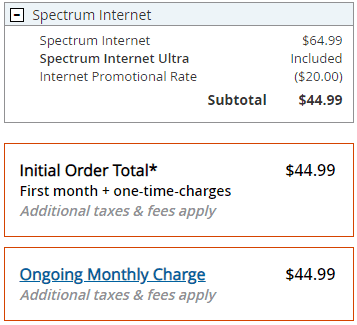

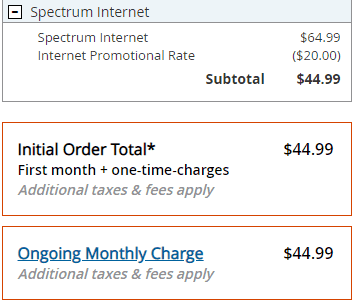

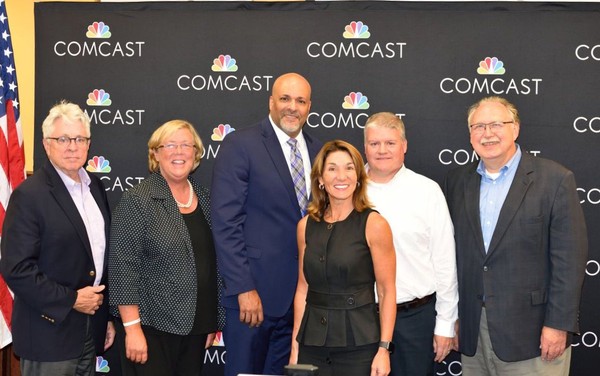
 A divide and conquer campaign to peel off communities from the WiredWest project has been underway for years. Earlier this year, MBI
A divide and conquer campaign to peel off communities from the WiredWest project has been underway for years. Earlier this year, MBI  Charter’s lawyer suggests it is in the Commission’s best interest to accept additional delays in the deadlines to file
Charter’s lawyer suggests it is in the Commission’s best interest to accept additional delays in the deadlines to file 